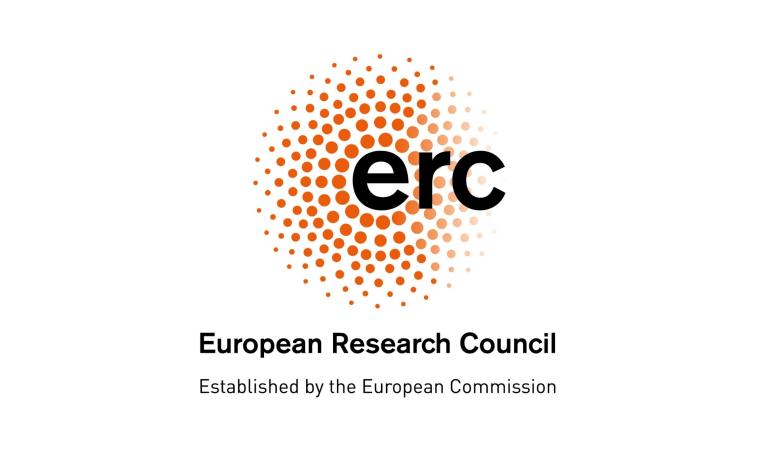EU invests €540 million to boost cutting-edge research
Senior scientists across Europe will use these EU funded grants to explore their most daring research ideas. Their work could answer some of today’s pressing questions, such as how to improve the generation and storage of renewable energy or how to help our biological clocks cope with our 24/7 modern lives. This 2019 round of European Research Council grants could lead to the creation of 2,000 new jobs.

Senior scientists across Europe will use these EU funded grants to explore their most daring research ideas. Their work could answer some of today’s pressing questions, such as how to improve the generation and storage of renewable energy or how to help our biological clocks cope with our 24/7 modern lives. This 2019 round of European Research Council grants could lead to the creation of 2,000 new jobs.
On this occasion, Carlos Moedas, European Commissioner for Research, Science and Innovation, said: “The ERC Advanced Grants back outstanding researchers throughout Europe. Their pioneering work has the potential to make a difference in people’s everyday life and deliver solutions to some of our most urgent challenges. The ERC gives these bright minds the possibility to follow their most creative ideas and to play a decisive role in the advancement of all domains of knowledge”.
The President of the European Research Council (ERC), Professor Jean-Pierre Bourguignon, commented: “Since 2007, the European Research Council has attracted and financed some of the most audacious research proposals, and independent evaluations show that this approach has paid off. With this call, another 222 researchers from all over Europe and beyond will pursue their best ideas and are in an excellent position to trigger breakthroughs and major scientific advances.”
He continued: “Had the ERC budget been higher, more brilliant ideas could have been supported in Europe. I hope that the next EU framework programme for research, Horizon Europe, will make this possible. There is certainly more room at the top.”
The work of these new grantees covers all fields of research. In Switzerland, a social scientist will study how crowd-sourced data can make cities smarter and more liveable. Another scholar in Hungary will explore the role of working class women in the fight for social and gender justice in Eastern Europe. See more project examples.
ERC competitions are open to any nationality and, in this round, researchers of 29 nationalities received funding. The grantees will carry out their projects at universities and research centers in 20 countries across the EU and Horizon 2020 Associated countries.
Demand for ERC grants remains very high: 2,052 research proposals were submitted this time, out of which almost 11% were selected for funding. Female researchers submitted more than 19% of proposals and some 20% of grants were awarded to women. The grants will not only allow top researchers to execute their best ideas at the scientific frontiers, but will also lead to job creation as an estimated 2,000 postdocs, PhD students and other staff could be employed in the grantees' research teams.
See more statistics
List of all selected researchers (alphabetical order by country then by surname)
Lists of selected researchers by domain (alphabetical order)
For potential applicants
Researchers who would like to compete for an ERC Advanced Grant have from 21 May to 29 August 2019 to apply for the next round of funding. Visit our website for application details.
Background
The ERC Advanced Grants in brief:
- For well-established top researchers of any nationality or age, who are scientifically independent and have a recent high-level research track-record and profile which identifies them as leaders in their respective field(s).
- Based on a simple approach: 1 researcher with his/her team, 1 host institution, 1 project, 1 selection criterion: scientific excellence.
- The host institution should be based in an EU Member State or Associated country. This can be the institution where the researcher is already working, or a new one. The host institution can be changed in the course of the project if the researcher so wishes (“portability of the grant”).
- No consortia or co-funding are requested.
- Funding: up to €2.5 million per grant (can exceptionally go up to €3.5 million, in case of purchase of major equipment, mobility from another continent, etc.).
About the ERC
The European Research Council, set up by the European Union in 2007, is the premiere European funding organisation for excellent frontier research. Every year, it selects and funds the very best, creative researchers of any nationality and age, to run projects based in Europe. The ERC offers four core grant schemes: Starting, Consolidator, Advanced and Synergy Grants. With its additional Proof of Concept grant scheme, the ERC helps grantees to bridge the gap between their pioneering research and early phases of its commercialisation.
To date, the ERC has funded some 9,000 top researchers at various stages of their careers, and over 50,000 postdocs, PhD students and other staff working in their research teams. The ERC strives to attract top researchers from anywhere in the world to come to Europe. Key global research funding bodies, in the United States, China, Japan, Brazil and other countries, have concluded special agreements to provide their researchers with opportunities to temporarily join ERC grantees' teams.
The ERC is led by an independent governing body, the Scientific Council. The ERC President is Professor Jean-Pierre Bourguignon. With a budget of €1.86 billion for the year 2018, the overall ERC budget from 2014 to 2020 is more than €13 billion - part of the Horizon 2020 programme, for which European Commissioner for Research, Innovation and Science Carlos Moedas is responsible.
More information

